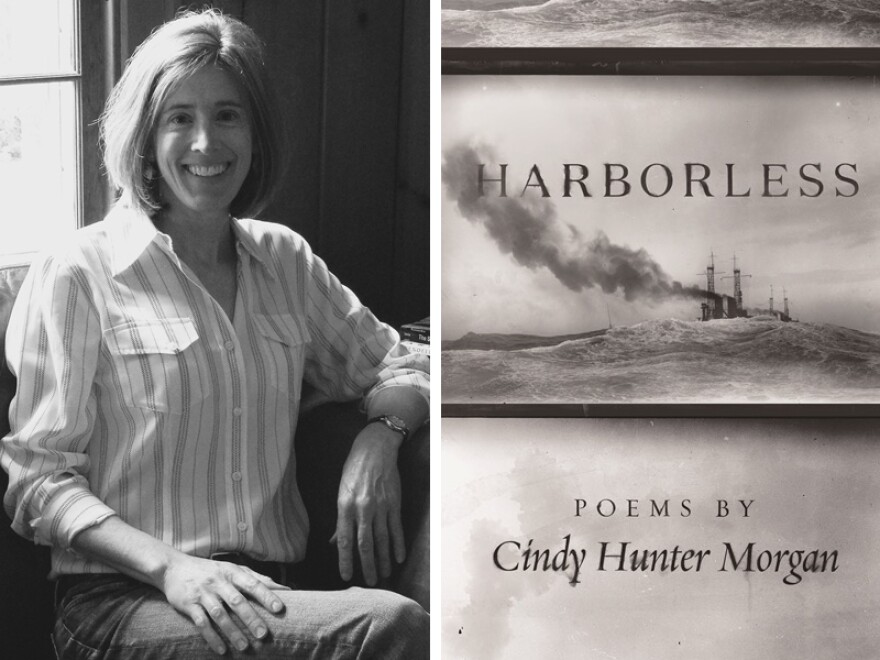The story of the Great Lakes is one of remarkable beauty and extraordinary violence.
According to the Great Lakes Shipwreck Museum, the Lakes have collectively claimed some 6,000 ships and 30,000 lives. As long as ships have been on the Lakes, ferocious storms have been swallowing those ships—and their crews—whole.
It’s that grim yet compelling history that Cindy Hunter Morgan explores in her new collection of poems, Harborless. The collection is Morgan’s telling of 40 different Great Lakes shipping disasters, stretching across two centuries.
Morgan told us that, while the collection is anchored in history, each work required a dose of imagination.
“All of these poems contain these imaginative moments, and I think that’s what makes them poetry,” she said. “That’s where the balance shifts and tips them toward poetry… Most have some nugget of historical accuracy but then they do shift this imaginative territory.”
Many of the poems explore the fateful final moments of a sinking vessel.
In Philadelphia, 1893, for instance, Morgan describes a steamer that went down after colliding with another ship. The wreckage of that collision is still preserved today, as part of the Thumb Area Bottomland Preserve in Lake Huron.
Morgan said the image of the Philadelphia’s cargo sitting at the bottom of the lake was the inspiration for the poem.
PHILDELPHIA, 1893 Lake Huron The ship sank with a load of cast-iron stoves, which tumbled, lopsided, through white foam, green water, teal water, water as dark as coal, then darker. From deck to lake floor, they dropped 200 feet, plummeting past the white faces of lost men, who stared, gaping. One man, hit by a stove, grasping for something, swung his legs around the belly of another stove singing beside him and rode it to the bottom. When it settled in silt, he slipped off—an arm floating across his forehead— and slumped, exhausted, near the hearth: wreck of a boy in November done with chores.
Listen to our interview with Cindy Hunter Morgan to hear her read that poem, along with “Henry Clay, 1851” and “Chicora, 1895.”
The collection, Harborless, is available from Wayne State University Press. For details about events, click here.
(Subscribe to the Stateside podcast on iTunes, Google Play, or with this RSS link)





